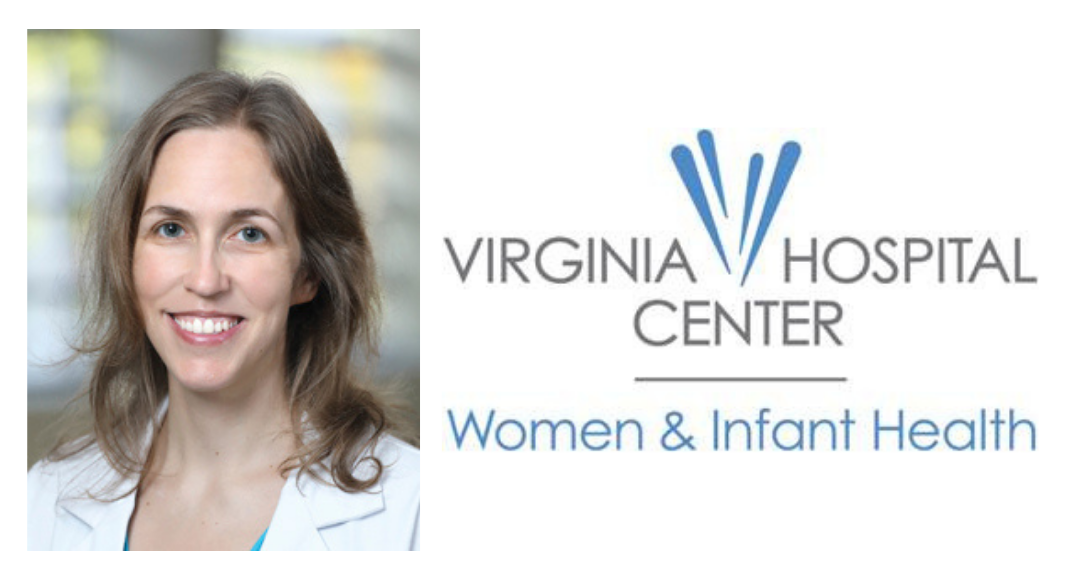Dr. Amanda Rohn, MD, FACOG is an OB/GYN physician and Medical Director of the Virginia Hospital Center Physician Group Outpatient OB/GYN Practices. She provides gynecologic and obstetric care to patients in the DMV region based out of Virginia Hospital Center’s location in Arlington, VA. Her philosophy emphasizes collaborative decision-making between patients and providers, evidence-based care, and recognition that more medical treatment is not always better.
We sat down with Dr. Rohn, who has counseled thousands of women throughout their pregnancy journeys, to discuss our reader’s top questions on miscarriage. Stay tuned for part 2 of our interview with Dr. Rohn, where we discuss fertility and pregnancy planning.
Miscarriage and infant loss isn’t something that’s often talked about. However, you identified this as a topic you wanted to discuss with our readers. Where should we start?
Because it’s not often talked about, most people assume that miscarriage is uncommon. But as health care providers who care for women throughout their lifetime, through the good and the bad, we know this is a common experience. I think awareness about how often miscarriage occurs may help it feel less isolating for those who experience a loss.
Clinically speaking, the chance of experiencing a miscarriage is highest during the earliest stages of pregnancy. About half of early pregnancies fail to implant—even though mom might have gotten a positive pregnancy test in the office or at home. Further along in pregnancy, 10% to 20% of clinically recognized pregnancies end in miscarriage—that could be after the pregnancy is seen via ultrasound.
Women who lose a baby at any point in their pregnancy often find that the experience can be hard to articulate with others. Many find comfort in sharing with others who have also experienced miscarriage or infant loss. To help facilitate that, our maternity care team at Virginia Hospital Center hosts a Remembrance Ceremony each October. Families who have experienced infant loss come together to remember, pay tribute, and connect. Many of our clinical team also join, as these experiences touch their lives as well.
What do you wish more people knew about miscarriage?
I would like women and families in our community to know that if they experienced a miscarriage it is very unlikely that their behaviors did anything to cause it.
Most miscarriages are caused by a chromosomal problem with the egg, the sperm, a combination of the two, or the cell division process. Many of my patients who experience a miscarriage reflect back on their actions and worry that it was caused by a glass of wine, trip to the gym, sexual intercourse, or taking a hot bath. I want to assure my patients and other women who have experienced miscarriage, that these are not common causes for a miscarriage.

What is one thing that you have learned after counseling many patients through the experience of miscarriage?
I’ve learned that each person processes a miscarriage differently. I find that some women are surprised by their own responses. Those who were expecting to be devastated may feel acceptance. Others may be surprised by their grief. Our role as clinicians is to prioritize how our patient is processing it—that’s what matters the most.
For all of my patients who have experienced miscarriage, I ask them to be gentle with themselves. I tell my patients that, while they will process the experience, they will never really be ‘over it’—they will carry this experience with them.
What happens when a woman realizes she has experienced a miscarriage?
Depending on other medical factors, there is usually a range of options that a woman may consider after experiencing a miscarriage. While some providers are comfortable with only a few of these options, our patients are generally presented with all of these options granted they are safe for their unique situation. A woman’s decision about what to do is very personal.
Women who experience a miscarriage have the option of waiting for the pregnancy to pass naturally, or can choose to take medication that brings about the process more quickly. Others prefer to have a surgical procedure in the office setting under local anesthesia, or in an operating room under sedation.
For women who have experienced a miscarriage, is it more likely to happen again?
Statistically speaking, for women who have experienced a miscarriage, the most likely outcome in the next pregnancy is a normal healthy pregnancy!
Having one miscarriage does slightly increase the likelihood of having another. But, the increased chance isn’t by all that much—just a few percentage points. However, if a woman has had multiple miscarriages, her likelihood of another goes up more, and at that point, we would recommend advanced testing to look at underlying causes.

What can be done to prevent a miscarriage?
Unfortunately, the majority of miscarriages are due to random chance and cannot be prevented. In the case of recurrent loss, testing can sometimes identify underlying causes like diabetes or thyroid issues, structural problems in the uterus such as fibroids, or chromosomal issues in either partner. Understanding these causes helps us manage and treat any underlying conditions that may be getting in the way of a healthy pregnancy so that the next pregnancy is more likely to succeed.
Stay tuned for part two of our interview series with Dr. Rohn, where we will discuss fertility and pregnancy planning.
About the Guest Author:
Dr. Rohn practices at 1625 N. George Mason Drive, Suite 325, in Arlington, Virginia. In her free time, Dr. Rohn enjoys knitting, baking, being outdoors, and spending time with her husband and young children in their antique home in DC. Schedule an appointment with Dr. Rohn or a member of VHC’s OB/GYN care team by visiting our OB/GYN physician group webpage or calling 703.717.4600.
















